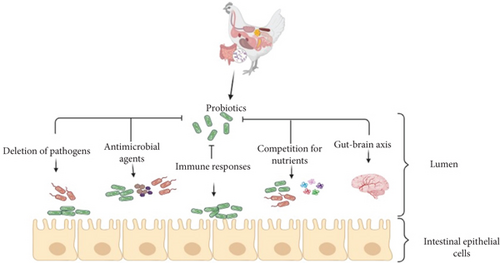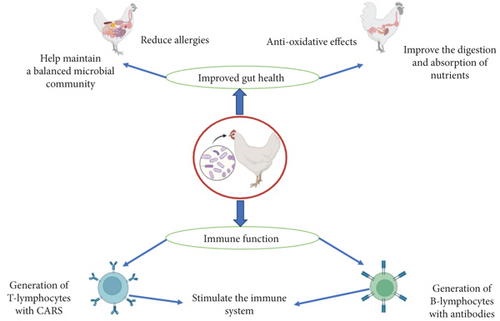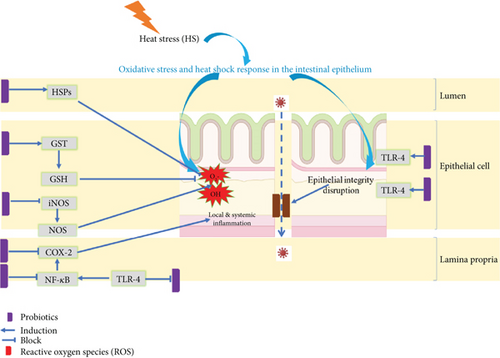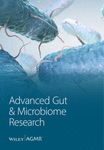Probiotics in Disease Management for Sustainable Poultry Production
Abstract
Probiotics have emerged as a viable strategy to mitigate diseases in poultry, offering a sustainable alternative to traditional methods. Therefore, this review explores the potential of probiotics to improve poultry health, productivity, and environmental impact within poultry farming systems. In the context of sustainable poultry production, the use of probiotics for disease management presents a promising avenue to improve animal health and productivity. This review provides a comprehensive analysis of the scientific rationale behind probiotic interventions in poultry, highlighting their ability to modulate the gut microbiota, enhance immune function, and mitigate pathogen proliferation and the mechanisms by which probiotics influence poultry health. Through a comprehensive review of the current literature and research findings, this review elucidates the potential of probiotics as a viable alternative to conventional antibiotic use to promote sustainable poultry production practices. By shedding light on the scientific rationale and practical applications of probiotics in disease management, this review contributes to a deeper understanding of how probiotic interventions can optimize poultry health outcomes while ensuring long-term sustainability in the poultry industry. This comprehensive review provides valuable information on the potential of probiotics as alternatives to antibiotics in poultry production and offers directions for future research and development in this field in formulations and metagenomic analysis. These studies present exciting opportunities for advancing the field of probiotics in poultry production.
1. Introduction
Currently, the poultry sector has faced notable difficulties related to disease outbreaks, which present a substantial risk to the health, efficiency, and economic sustainability of birds [1]. Illnesses among poultry can rapidly propagate through groups of birds, resulting in elevated death rates, slower growth, diminished egg output, and higher operating expenses. These incidents not only directly affect the poultry industry but also have wider consequences for food safety and public well-being [2]. Conventional methods for controlling diseases, such as vaccination and antimicrobial treatments, have been the main strategies used by poultry farmers to combat illnesses [3]. The overuse and misuse of antimicrobial agents, including antibiotics, in poultry production have contributed to the development of resistant strains of bacteria [4]. In this review, the concept of using probiotics as a viable alternative to disease management in poultry production has gained traction.
Probiotics are live microorganisms that provide health benefits to the host when administered in sufficient amounts. Within the poultry sector, there is a growing interest in using probiotics as a substitute for antibiotics in the management of diseases [5]. In recent years, probiotics have gained attention as a potential solution for the management of diseases in poultry production [6]. These beneficial bacteria offer a natural alternative to chemotherapeutic agents, which can negatively impact the environment and animal health. Probiotics based on spore-forming bacteria are widely used as feed supplements for poultry due to the heat stability of spores during the processing of feed pellets and stock before feeding [7]. These probiotic supplements, which contain spore-forming bacteria, can survive high temperatures during feed processing and remain stable until they are consumed by poultry [8]. This allows probiotic strains to colonize the gastrointestinal tract and promote healthy microbiota [9]. The use of probiotics in the management of poultry disease has shown promising results in improving overall flock health and reducing the risk of enteric diseases [10]. Probiotics have been found to boost growth, enhance immune function, and improve the efficiency of nutrient utilization in poultry [7]. Furthermore, the use of probiotics has been shown to decrease mortality rates, increase weight gain and lay in poultry, and improve fertility in turkeys [11, 12]. In general, probiotics offer a natural and effective means of disease management in poultry production [13]. Probiotic supplementation in the diet can positively impact poultry health and performance by altering the gastrointestinal microflora, improving growth performance, and improving intestinal morphology. The main objectives of this review are to examine the advantages and efficacy of probiotics in poultry production, with an emphasis on disease prevention and management.
2. Benefits of Probiotics in Disease Prevention
2.1. Improved Gut Health and Enhanced Immune Function
Probiotics play an important role in supporting a harmonious balance of microorganisms in the gut, contributing to a healthy gut environment. When they establish themselves in the gastrointestinal tract, they hinder the proliferation of harmful bacteria, lower the likelihood of infections, and improve the digestion and absorption of nutrients [14]. They are commonly found in the guts of healthy animals, where they help maintain a balanced microbial community and contribute to overall health and well-being. Probiotics have been shown to improve gut health, improve immune function, and reduce the risk of gastrointestinal diseases in poultry [15]. One of the key benefits of probiotics is their ability to prevent or reduce the incidence of disease in poultry. Probiotics can inhibit the growth of pathogenic bacteria by competing for nutrients and adhesion sites in the intestinal tract, ultimately reducing colonization and proliferation of harmful bacteria. Various studies have shown that probiotics reduce the incidence of diseases such as necrotic enteritis [16], coccidiosis [17], and B. subtilis [18].
In addition to disease prevention, probiotics have been explored as alternatives to antibiotics in poultry production [19]. Antibiotics have been widely used in poultry production to promote growth and prevent diseases; however, their use has been associated with the emergence of antibiotic-resistant bacteria. Probiotics offer a natural and sustainable approach to disease management, without relying on antibiotics [20]. Several studies have shown that probiotics can improve growth performance and feed efficiency in poultry [21], while reducing the need for antibiotics [22]. Probiotics have also been associated with stress management in poultry. Stress can harm poultry health and productivity; however, probiotics have been shown to modulate the stress response by regulating the production of stress hormones and improving communication of the gut-brain axis [23]. This can lead to better overall health and performance of poultry [24].
Probiotics can activate the immune system of poultry. They regulate the generation of immune cells such as T and B lymphocytes, macrophages, and natural killer cells, resulting in enhanced immune reactions against harmful microorganisms. This increased immune activity contributes to protecting poultry from diseases, minimizing the need for pharmaceutical treatments. Probiotics can activate and strengthen the immune system of poultry, increasing their resistance to a wide range of diseases and infections. Improved immune function is a significant advantage of incorporating probiotics into poultry production [25]. Studies have shown that probiotics can effectively modulate and fortify the immune system of poultry, resulting in enhanced protection against various diseases and infections. One of the ways probiotics achieve this is by stimulating the production of cytokines, which are important signaling molecules involved in the regulation of the immune response. Cytokines are signaling molecules that play a critical role in the activation and regulation of immune cells. Research has shown that specific probiotic strains can stimulate the production of cytokines in poultry. In a study by Muhammad et al. [26], broiler chickens were administered Lactobacillus acidophilus as a supplement, resulting in an improved immune response characterized by increased cytokine production and improved immune cell function [17]. In addition to cytokines, probiotics can also influence the production of immunoglobulins, which are essential components of the immune system. Immunoglobulins, including IgA, IgG, and IgM, play a crucial role in the defense of the body against pathogens by neutralizing them and preventing their colonization [25]. Studies have indicated that supplementing poultry with probiotics can enhance immunoglobulin production. According to Babaei et al. [27], broiler chickens received probiotics containing Lactobacillus acidophilus and Lactobacillus casei, resulting in an increase in immunoglobulin production compared to the control group [27]. Additionally, probiotics can support the development and maturation of gut-associated lymphoid tissue (GALT), an essential component of the immune system in the gastrointestinal tract. Healthy GALT is crucial for the formation of effective immune responses against pathogens. As shown in Figure 1, the “Mechanism of action of probiotics and their uses,” probiotics play a crucial role in improving poultry health and performance through various mechanisms, ultimately contributing to sustainable poultry production practices. The figure outlines how probiotics can enhance gut health, improve immune response, and promote growth in poultry, highlighting their multifaceted benefits. By leveraging these positive effects of probiotics, the figure suggests that they can be leveraged to support more sustainable poultry production practices (Figure 1).

Probiotics can regulate intestinal microflora, creating an environment that supports the growth and function of intestinal-associated lymphoid tissue (GALT). Probiotics stimulate the production of immune-modulating compounds and improve the activity of immune cells, thus improving the ability of birds to fight infections [28]. Probiotic supplementation has been shown to increase antibody production and improve the overall immune response in poultry [29]. As shown in Figure 2 in the following, this in turn improves the overall gut health and immune function of poultry. However, it is important to consider that the effects of probiotics on immune function can vary depending on factors, such as the specific strain used, the dosage, and the duration of administration. Different probiotic strains may have different abilities to stimulate immune responses. Therefore, it is essential to carefully select probiotic strains that have been extensively studied and have shown positive effects on immune function in poultry.

2.2. Pathogen Displacement and Production of Antimicrobial Substances
Probiotics have been shown to have a significant potential to prevent or reduce various diseases in poultry. These beneficial microorganisms can help maintain healthy gut microbiota balance, enhance immune response, and reduce colonization of harmful bacteria in the gut. Some probiotic strains can effectively displace harmful pathogens that adhere to the intestinal wall by occupying receptor sites. This displacement mechanism inhibits pathogen colonization and the consequent infection [30], decreasing the likelihood of diseases such as salmonellosis [5], clostridiosis, and coccidiosis [31]. Poultry are common carriers of Salmonella, and transmission to humans can occur through contaminated poultry products. Probiotics, such as Lactobacillus acidophilus and Enterococcusfaecium, have been shown to reduce Salmonella colonization in the intestine of poultry, thus reducing the risk of transmission to humans [29].
Probiotics can generate antimicrobial substances, including organic acids and bacteriocins, that hinder the growth of harmful bacteria. These compounds create an unfavorable environment for pathogens, leading to a decrease in their population and effective prevention of disease outbreaks. Probiotics have been increasingly recognized as alternatives to antibiotics in various applications. The overuse of antibiotics in animal production has led to the emergence of antibiotic-resistant bacteria that pose a significant threat to public health. Probiotics, on the other hand, offer a natural and safe alternative to antibiotics in various applications. Antibiotics have been shown to improve feed efficiency and increase weight gain in poultry and livestock. The use of antibiotics as growth promoters has been associated with the emergence of antibiotic-resistant bacteria. Probiotics have been shown to have similar effects on growth promotion in poultry and livestock [32].
2.3. Improved Nutrient Utilization
Probiotics help break down and ferment complex carbohydrates, enhancing the utilization of nutrients such as fiber and starch. This improved availability of nutrients supports the optimal growth and performance of poultry, thus reducing the likelihood of nutrient-related disorders. Live microbes use nutrients and energy for growth and proliferation within the host [21]. According to a study by Jha et al. [33], probiotic supplementation improved intestinal barrier function and increased the ratio of villus height to crypt depth, leading to greater absorption in the intestine and a concurrent improvement in the ATTD of nutrients [33]. The enhanced digestibility and absorption of nutrients can be attributed to the production of extracellular enzymes by the vegetative form of B. subtilis [34]. Jin et al. [35] investigated the effects of L. acidophilus and a mixture of Lactobacillus strains on the utilization of nutrients in 180-day-old Arbor Acres chicks. Their results showed that both supplements increased amylase levels in the small intestine and reduced β-glucuronidase and β-glucosidase activities in the intestinal and fecal β-glucuronidase and β-glucosidase activities at 40 days of feeding [35]. Singh et al. [36] investigated the effects of combining enzymes with probiotics (three Bacillus spp.) on nutrient digestibility in Cobb 500 broilers. They observed that this combination increased the digestibility of most amino acids, except arginine and serine, compared with the control group [36]. These findings suggest that probiotics can selectively influence the utilization of key nutrients. As illustrated above in (Figure 2), probiotics have been shown to significantly improve nutrient utilization in poultry, leading to improved feed efficiency and overall health benefits for birds.
2.4. Stress Reduction
Poultry production is frequently accompanied by numerous stressors, such as transportation, handling, and dietary adjustments [37]. These stressors can compromise the immune system and make birds more vulnerable to diseases [38]. Probiotics have demonstrated the ability to alleviate stress by regulating stress hormone production and influencing the gut-brain axis. By reducing stress levels, probiotics help maintain a robust immune system, ultimately promoting overall poultry health [39]. There are many disputable hypotheses regarding why probiotics eliminate heat stress problems. Probiotics increase the activity of thyroid hormones, whose secretion is abnormally reduced during heat stress. Thyroid hormones have a significant effect on body metabolism and normal growth and development [40]. Returning the T3 (triiodothyronine) and T4 (thyroxine) hormones to the correct levels could reduce the number of abnormal changes in intestinal tissues and increase the growth of birds [41]. Heat stress creates problems in the poultry industry, negatively affecting the immunology, physiology, and microbiology of birds. Excess ambient temperature alters intestinal morphology, disrupts absorption and digestion, and facilitates the penetration of toxins and luminescent antigens into the blood [42]. Ischemia and hypoxia in intestinal tissues are other negative effects of heat stress. The use of probiotics reduces stress in laying hens, improving their well-being and productivity. Probiotics support intestinal health, boost immunity, and manage stress responses, benefiting hen welfare and egg production sustainability [43]. Modern breeds of chickens are particularly vulnerable to the negative impacts of heat stress. Broiler chickens, known for their rapid growth, generate more heat, leading to increased susceptibility to heat stress [44]. Figure 3 illustrates the detrimental impact of heat stress on the intestinal barrier and outlines the mechanisms through which probiotics provide protective effects, adapted from Abd El-Hack et al. [7].

2.5. Antibiotic Alternatives
As concerns about antibiotic resistance increase, finding effective alternatives has become imperative in poultry production. Probiotics present a promising solution, as they offer similar advantages to antibiotics without associated risks [45]. Unlike antibiotics, probiotics do not contribute to antimicrobial resistance and can be used safely for extended periods. Probiotic supplementation of broilers with B. licheniformis and B. subtilis may significantly decrease the load of Salmonella in the ileal and cecal microflora [46, 47]. When broilers challenged with Salmonella enteritidis were fed a Bacillus coagulans diet, this diet helped increase Lactobacilli and Bifidobacterium but reduced coliform and Salmonella concentration in the cecum [33]. Probiotics have been identified as alternatives to antibiotic growth promoters (AGP). Given the diversity between strains and species of microorganisms, a particular characteristic is that they do not leave residues in animal products, as opposed to antibiotics [17]. Figure 4 shows the effectiveness of probiotics as an alternative to antibiotics. This is an important consideration given the growing concerns around antibiotic resistance and the need to explore alternative treatment options. The data shown in the figure indicates that probiotics can be as effective, or in some cases, even more effective, than traditional antibiotic therapies. This review highlights the potential for probiotics to serve as a complementary or alternative approach to addressing various health conditions, potentially reducing the overreliance on antibiotics.

2.6. Cost-Effectiveness and Environmental Benefits
Inclusion of probiotics in poultry production can result in cost savings [48]. Probiotics can help reduce feed expenses by improving nutrient utilization and improving feed efficiency. Furthermore, the reduction in the occurrence of infections and the decrease in antibiotic dependency can lead to lower vet costs, ultimately reducing overall production expenses on poultry farms [49]. This cost-effectiveness establishes probiotics as viable and sustainable options for disease management. Incorporation of probiotics into poultry production can produce environmental benefits. By decreasing antibiotic dependency, the release of antibiotic residues into the environment can be minimized. Furthermore, probiotics can reduce the excretion of harmful pathogens from poultry waste, reducing the risk of contamination in the surrounding environment [50].
2.7. Consumer Preference
As the demand for natural and organic poultry products continues to increase, the use of probiotics is due to consumer preferences. Probiotics are considered a natural method of treating diseases and are appealing to consumers who desire products containing minimal synthetic additives or antibiotics. The use of probiotics can improve the quality of meat and eggs, which is beneficial as the demand for meat and eggs continues to grow as the global population increases [5]. The main goal of poultry farming is to provide healthy and safe poultry products. Probiotics have become alternative growth promoters that increase the quality and productivity of animal products. Probiotics have a positive effect on the overall weight of the carcass, with reduced abdominal fat leading to better carcass quality for poultry. Increased carcass yield has been observed in chickens, regardless of sex [51, 52]. The use of cholesterol by probiotic bacteria contributes to the reduction of cholesterol levels in meat [53]. Probiotics containing Bacillus licheniformis have resulted in significant improvements in the amount of protein and essential amino acids [54]. The combined supplementation of A. awamori and S. cerevisiae synergistically improves growth performance by promoting muscle protein metabolism [55]. Probiotics can improve chicken meat flavor, increase intestinal microbiota diversity, and improve meat oxidative stability. An important aspect for consumers is to improve the taste, smell, and color of poultry meat [56]. The quality of the eggs was improved by increasing their strength and shell thickness [57]. The fertility and hatching capacity of the eggs improved in the flocks where probiotics were administered [58]. In the groups of laying hens fed probiotics, the dry matter of the eggs and the percentage of protein increased. This can cause an increase in egg weight. Improvement in the quality of life of animals due to probiotics also has positive economic effects, as the number of broken eggs is reduced due to a stronger shell structure [59]. Table 1 provides a comprehensive summary of the beneficial probiotics that are used in the effective management and control of poultry diseases. These probiotics play a crucial role in promoting poultry health, improving disease resistance, and improving overall well-being in poultry production systems.
| Probiotic strains | Examples | Mode of action | References |
|---|---|---|---|
| Lactobacillus spp. | Lactobacillus acidophilus, Lactobacillus reuteri, Lactobacillus johnsonii, Lactobacillus crispatus, and Lactobacillus salivarius. | Improve intestinal health, improve nutrient absorption, and modulate immune response. | Patterson and Burkholder [32]; Olnood et al. [60] |
| Bacillus spp. | Bacillus subtilis, Bacillus licheniformis, and Bacillus coagulans. | Produce antimicrobial substances and improve nutrient utilization. | Ahmad et al. [45] |
| Enterococcus spp. | Enterococcus faecium and Enterococcus faecalis | Improve gut health, inhibit pathogen colonization, and improve immune response. | Xiang et al. [61] |
| Saccharomyces cerevisiae | Saccharomyces boulardii and Pediococcus acidilactici | Enhance nutrient utilization, improve intestinal integrity, and modulate the immune system | Abdel-Latif et al. [62]; Lin et al. [63] |
| Bifidobacterium spp. | Bifidobacterium animalis, Bifidobacterium longum, B. bifidum, and B. breve | Improve gut health, modulate the immune response, and inhibit pathogen growth of pathogens | Olnood et al. [60]; Jung et al. [64]; Lewis et al. [65] |
| Pediococcus spp. | Pediococcus acidilactici | Improve gut health, enhance nutrient utilization, and inhibit pathogen growth of pathogens in poultry | Liu et al. [66] |
| Streptococcus spp. | Streptococcus thermophilus | Improve gut health, enhance nutrient utilization, and modulate the immune response | Asli et al. [67] |
3. Conclusions
Incorporating probiotics into poultry production offers numerous advantages for disease prevention and management. Probiotics provide benefits, such as improved gut health, improved immune function, pathogen displacement, antimicrobial substance production, and better utilization of nutrients. Additionally, probiotics help reduce stress, serve as alternatives to antibiotics, and offer cost-effective solutions for farmers. Their use aligns with consumer preferences for natural and organic products and has positive environmental implications. However, it is important to note that the effectiveness of probiotics may vary according to factors such as strain, dosage, timing of administration, and specific disease conditions. More research is needed to fully understand and optimize the use of probiotics in poultry production. Integrating probiotics into poultry farming practices can contribute to improved animal welfare, reduced reliance on antibiotics, disease prevention, and increased productivity and profitability in the poultry industry. With the growing demand for sustainable and antibiotic-free poultry, probiotics have played a crucial role in meeting consumer preferences and promoting sustainable production practices.
Conflicts of Interest
The authors declare that they have no known competing financial interests or personal relationships that could have appeared to influence the work reported in this paper.
Authors’ Contributions
All authors participated in the study’s execution, result interpretation, and manuscript revision. Gelana Urgesa conducted individual searches for eligible datasets, authored the original manuscript, and extracted data from articles. Robert Kamutambuko reviewed and analyzed the manuscript. The final version of the manuscript was read and approved by all authors.
Open Research
Data Availability
Data is contained within the article, and the corresponding author can make any materials available on request.




